Moscow, Russia, 1989: Francois Bagne Ndione, a 27-year-old student and member of the Senegalese communist party, is in Russia for a year to study communism.
Moscow, Russia, 1989: Francois Bagne Ndione, a 27-year-old student and member of the Senegalese communist party, is in Russia for a year to study communism.
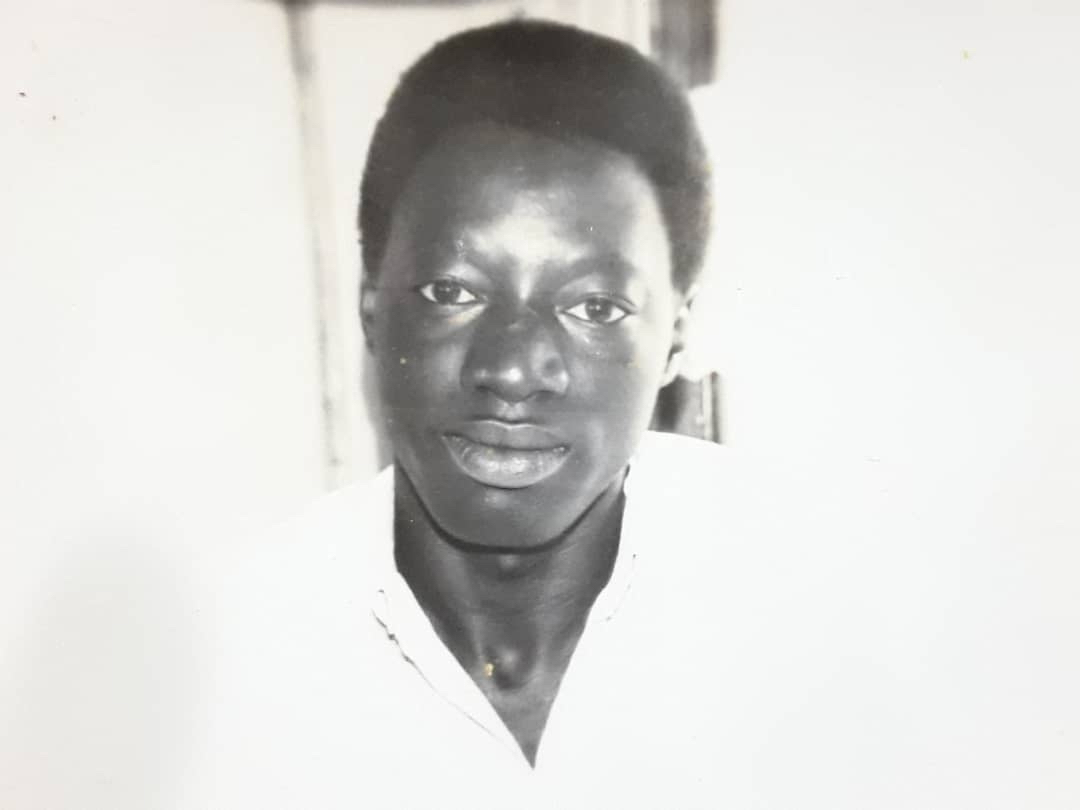 Bagne as a student in the 1980s
Bagne as a student in the 1980s ‘It was there that I adopted even more the communist ideology, economics, and psychology,’ Bagne explains. And that led me to deny the existence of God.’
Thiès, Senegal, 2023: Pastor Bagne, recently turned 60 – celebrated by a surprise party organised by his wife Cecille and their four daughters on the roof of their house – listens with excitement to the recording of Luke in Contemporary Wolof. Luke is the first book to be completed in a new translation project Bagne is leading for the language spoken by most people in Senegal.
‘We want people to know the gift God has for them,’ Bagne passionately explains, ‘his Son, Jesus, who died and rose again for the sins of humanity.’
So how did God guide Bagne from being an atheist, to becoming a follower of Jesus; from putting his faith in the wisdom of man, to finding the unchanging wisdom of God; and from studying in a communist university, to being a Bible translator? And why does Bagne feel the Bible is so important that he has dedicated so much of his life to translating it so others can know what it says?
‘While I would go to mass with my family, I wasn’t really practising,’ Bagne recalls about growing up, ‘so I didn’t learn much about the Bible.’
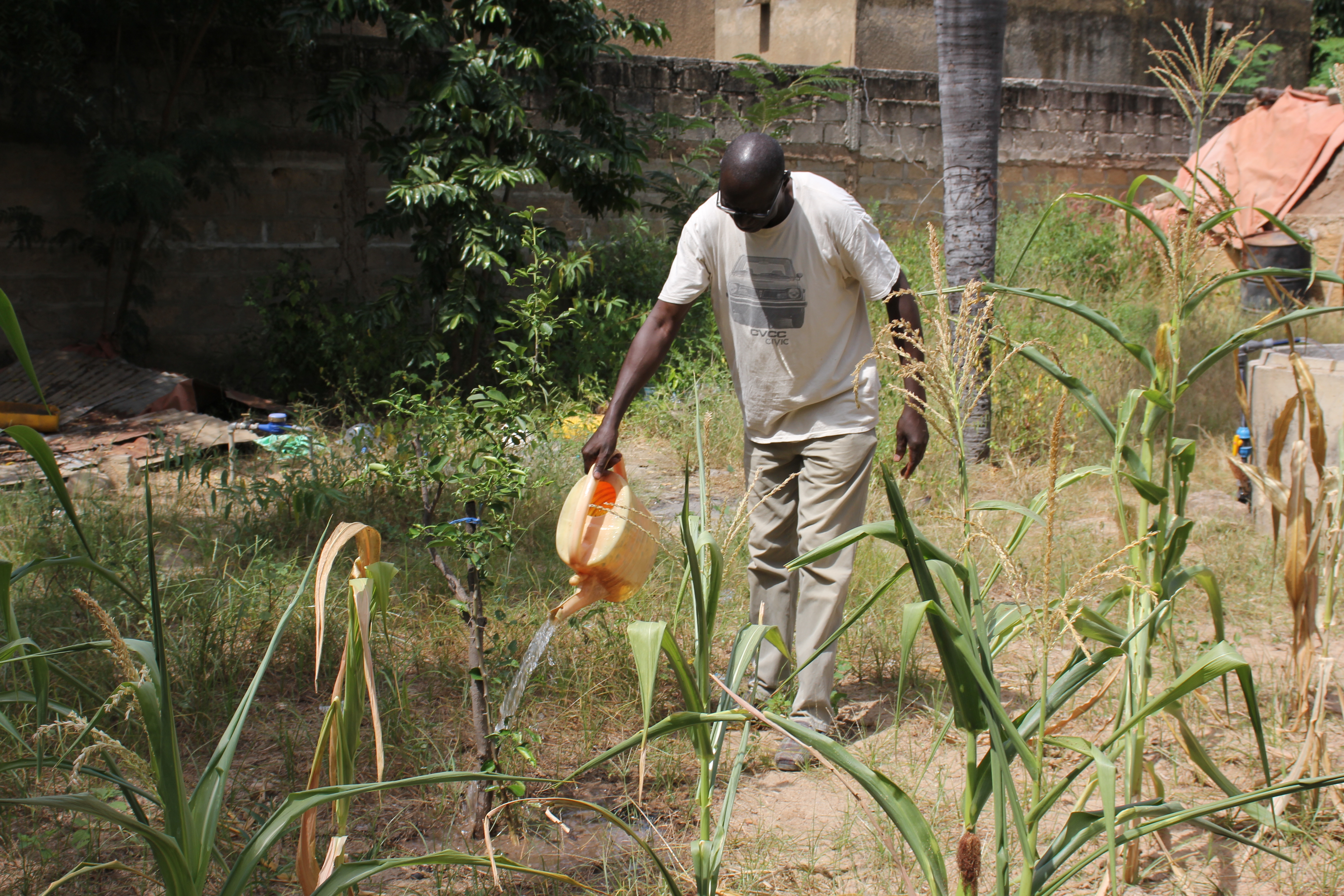 Bagne waters a tree on his farm
Bagne waters a tree on his farm While 97% of Senegalese people are Muslim, Bagne was born into a Catholic family in the village of Fandène, where he still lives, just outside Thiès, the third largest city in Senegal. Bagne’s parents were farmers and Bagne still has a love of farming, growing corn and fruit on a small farm just outside his village.
But as a boy Bagne saw how tough life was for farmers like his parents in post-colonial Senegal. So when he was at university, Bagne explains, ‘What motivated me the most was to improve my parents’ lives – and that led me into the arena of politics.’
Bagne wanted to make a difference. He stood for election for the communist PIT party – Parti de l’Indépendance et du Travail – in the 1988 Senegalese elections and then went to Moscow. ‘I was searching for knowledge and solutions for the wellbeing of my community,’ Bagne says. ‘But I put all my hope in human wisdom.’
‘When I returned from Russia, I started to see that the behaviour of my political leaders could change from one day to the next,’ Bagne says. ‘They would engage us in a struggle for change, but then negotiate with those in power to get the benefits. I began to see that human wisdom was not consistent and could be manipulated. I felt I couldn’t trust or count on this wisdom.’
It was then that Bagne met some people from Campus Crusade for Christ, and through them he started to read the Bible – his education enabled him to read it in French, something many people in Senegal can’t do.
‘When I was in contact with the word of God,’ Bagne recalls, ‘I saw the constancy of biblical truths. I discovered the wisdom of God is superior to that of man.’
The verse that jumped out at Bagne most was Revelation 3:20: ‘Here I am! I stand at the door and knock. If anyone hears my voice and opens the door, I will come in and eat with that person, and they with me.’
‘When I read that verse,’ Bagne explains, ‘I said to myself: “So, it is me who has closed the door. So I am going to do an experiment, and open my heart. Because certainly the solution that lasts is in Jesus.”
‘So I continued to read the Bible until I said to myself: “But I no longer need to look anywhere else. Everything is here.” The Bible gave me a new way to see the world. That is what made me decide to follow Jesus. And my whole life was transformed.’
After the joy of coming to faith in Jesus, Bagne asked God: ‘How can I be useful to my community? Show me what work I should do to serve you.’
‘And God answered that,’ Bagne says, ‘when I met some missionaries in an evangelical church in Thiès.’ They told him about a project to translate the New Testament into Noon, Bagne’s first language and the language spoken by his parents and community.
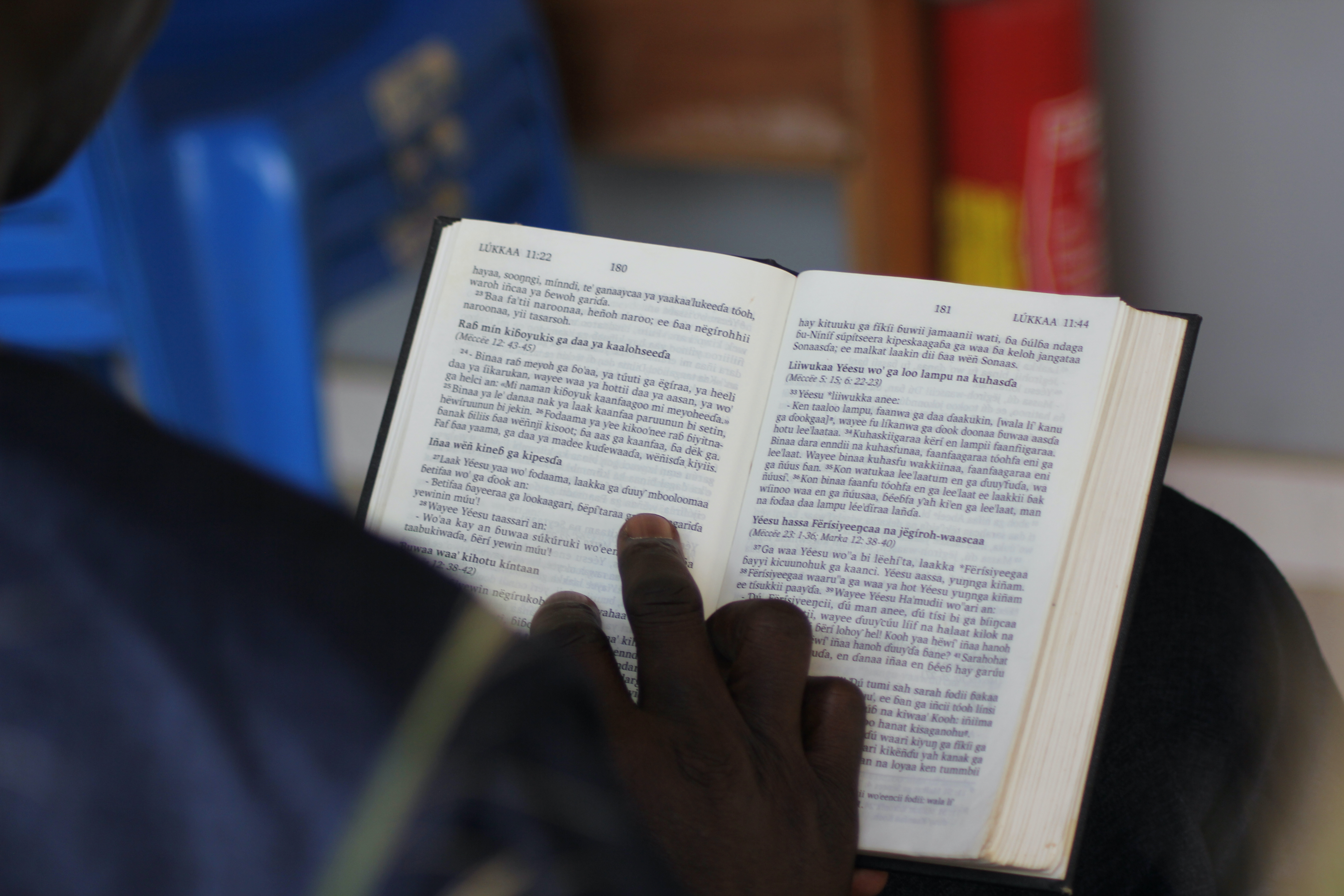 Bagne reads his precious Noon New Testament
Bagne reads his precious Noon New Testament ‘They proposed that I become involved in the Noon translation,’ Bagne remembers. But at first Bagne resisted. ‘I thought that to translate the Bible you have to be someone great,’ Bagne says. ‘But then I realised that it was God who was calling me, so I said to God: “My life is in yourhands.” And I began the work of translating the Bible.’
Bagne had found the way that God was calling him to contribute to the wellbeing of his community – through enabling his people to access God’s word in their language.
Since then, Bagne has followed God’s call to serve him through translating the Bible. The Noon New Testament was completed in 2012 and Bagne has seen the difference it has made.
‘Inevitably lives are transformed through contact with the New Testament,’ Bagne observes. ‘The translation of the word of God reveals truths which change our behaviour and lead us into a life shaped by the love of God.’
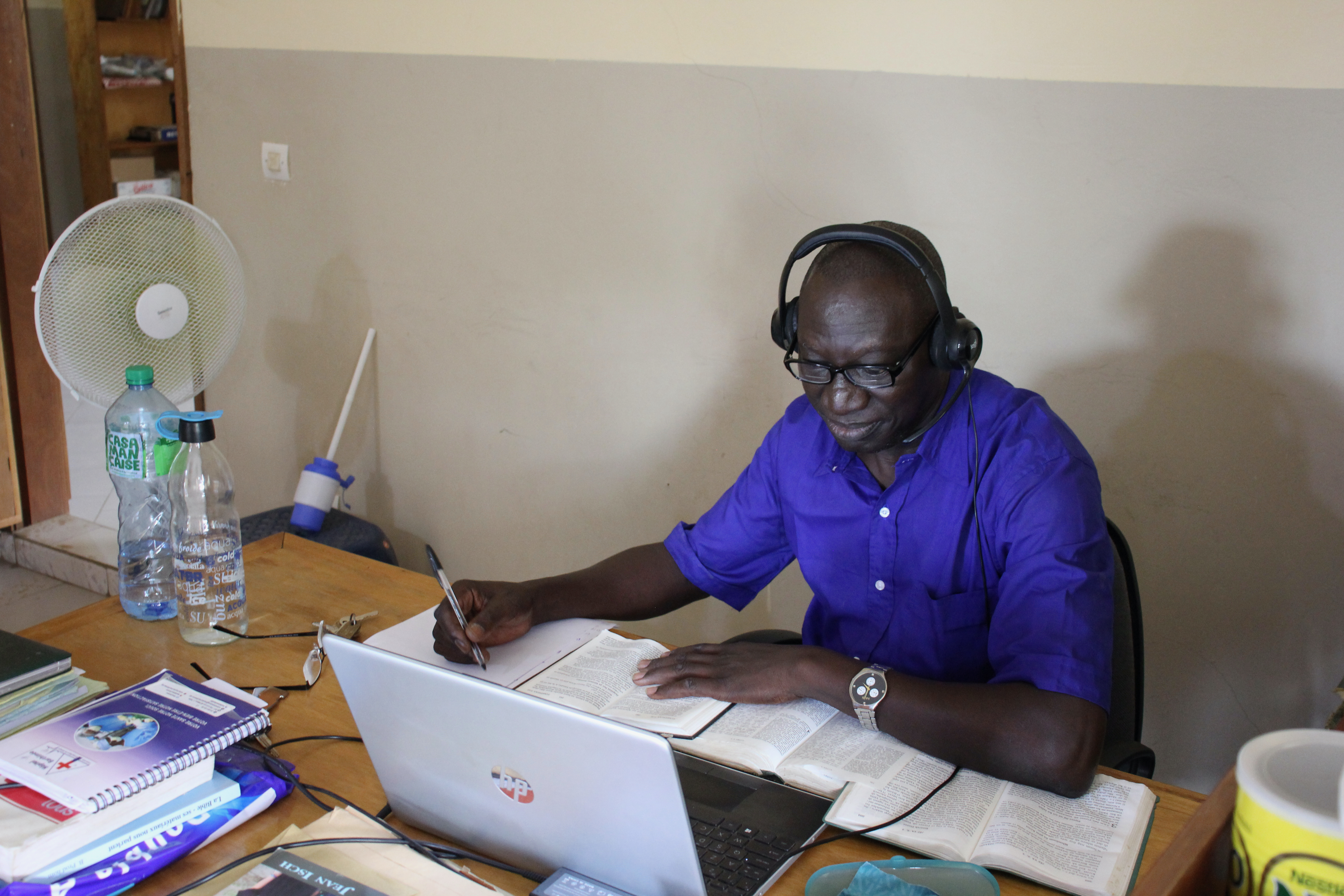 Bagne listens to draft oral translation recordings and makes comments
Bagne listens to draft oral translation recordings and makes comments Bagne also served as the pastor of the Evangelical Baptist Church of Thiès for four years. So when the Fraternité Évangélique du Sénégal – the body overseeing evangelical churches in Senegal – saw the need for a new translation into Contemporary Wolof, Bagne was excited to lead the translation team.
‘The target is to reach the maximum number of people,’ Bagne explains. While there is a translation in Regional Wolof, most younger and urban Wolof speakers don’t understand it.
‘Over 16 million people speak Contemporary Wolof – that is the overwhelming majority of the Senegalese population,’ Bagnenotes. ‘It is the language of the young, and over 60% of people in Senegal are young. So the translation of the Bible into Contemporary Wolof means that the great majority of people in Senegal will be able to access the word of God.’
The church in Senegal sees this translation as being vital for discipling those who are already Christians, and also as being key in reaching the vast majority of Senegalese people who don’t yet know Jesus. But Bagne and the Contemporary Wolof translation team cannot do this vital work alone. They can only do it in partnership with people like you.
‘A project like this needs partnership,’ Bagne says. ‘Partnership is like a team where each plays a role and each party needs the other to advance. ‘We cannot do anything alone. It is always touching to see that people thousands of miles from here have such a burden for the salvation of our people. That encourages us to excel in the work.
‘We give thanks to God for all the people who are on their knees praying for us, and who make savings to support us financially. Thank you and God bless you.’
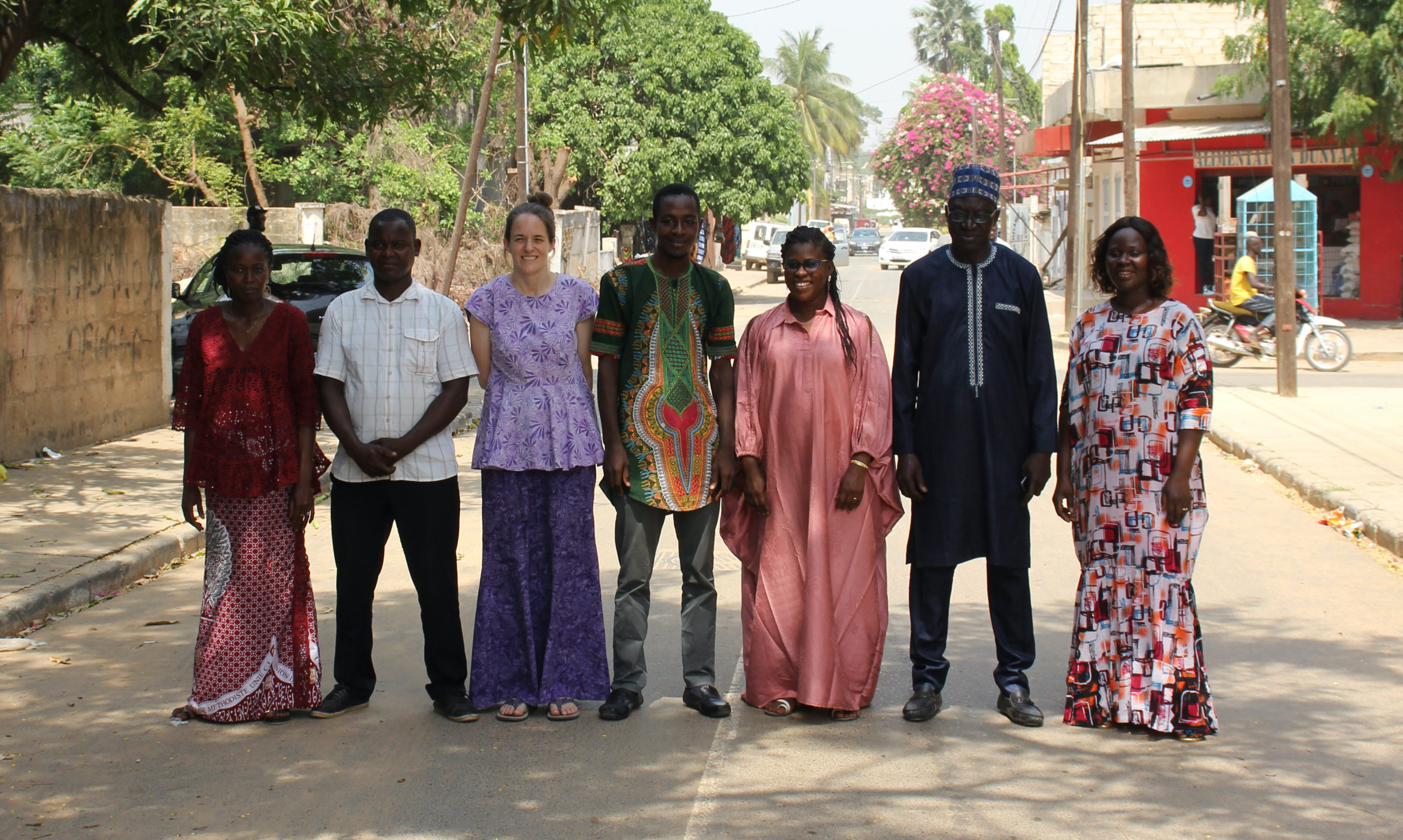 The Contemporary Wolof Bible translation team (L–R: Elizabeth, Augustin, Jamie, Hamidou, Paulette, Bagne, Elizabeth)
The Contemporary Wolof Bible translation team (L–R: Elizabeth, Augustin, Jamie, Hamidou, Paulette, Bagne, Elizabeth) The reason that you, Bagne, the other members of the Contemporary Wolof team, and so many other Bible translators working all round the world, partner together like this is so that more people can know Jesus through the Bible.
‘The truth of the Bible shouldn’t be limited only to one language or to one people,’ Bagne explains with deep passion. ‘Everyone has the right to have access to the word of God. Whether people are literate or illiterate, whether black or white, whether rich or poor, we are all equal before God. Everyone should benefit from the knowledge of God.
‘The translation of the Bible is so important. And the translation of the Bible into all the languages of the world must become a reality.’
This story originally appeared in Words for Life magazine. Click below sign up for the latest news, stats and ways to pray.